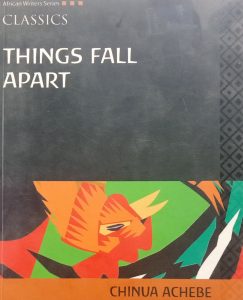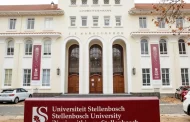Kenyan born leading African writer, Ngũgĩ wa Thiong’o, is stretching further the language question in African Literature by becoming what UK’s The Guardian is calling the first writer to be nominated for the International Booker prize as both author and translator of the same book, and the first nominee writing in an indigenous African language.
83 year old Ngugi described by the paper as perennial Nobel favourite is among 13 authors nominated for the award for best translated fiction. It carries a £50,000 prize that will be split evenly between author and translator.
This time, however, it is neither Petals of Blood nor A Grain of Wheat, two out of Ngugi’s many literary works, albeit with ideological stamp. Rather, it as writer and translator of The Perfect Nine which The Guardian refers to as a novel-in-verse and which the judges are being quoted as reckoning with to be “a magisterial and poetic tale about women’s place in a society of gods,” but written in the Bantu language Gikuyu.
If Ngugi gets this award, then he would have also been making a major statement on the language question in African Literature, an issue that found him and the late Chinua Achebe, for example, on different standpoints. Ngugi argues in favour of writing in mother tongue. Achebe agrees with that but argues how a rigid adherence to that would not be pragmatic for him in the Nigerian context. He has tended to experimenting with conditioning the English Language to serve his purpose of the writer as a teacher. Achebe’s sense of the teacher is a provider of perspectives rather than a strict professional sense of the word.

An Achebe, a Wole Soyinka or an Ngugi can write whatever they feel in any language. It will sell but can an unknown name do so with success
With the work which got this nomination, Ngugi could be said to have carried his resolution to write only in the mother tongue to a logical conclusion. It would be interesting to see what happens after his victory, not only on the language question but also the Women Question in African Literature. Above all, Ngugi would be demonstrating the power of words to survive repression, somehow, especially in the brutal African context. We do not have to go far, far back beyond Nawal el-Saadawi, the Egyptian feminist who died last week and Ngugi’s nomination in illustrating the claim. In both cases, neither the banning of the texts nor imprisonment of writers worked.
The Guardian says this year’s International Booker longlist spans 11 languages and 12 countries, and many of its works also cross genres. These include Benjamín Labatut’s When We Cease to Understand the World, a “nonfiction novel” that focuses on moments of scientific discovery and features Albert Einstein and Erwin Schrödinger. German author Judith Schalansky’s An Inventory of Losses is a history of lost objects. And Russia’s Maria Stepanova is nominated for her history of her family, In Memory of Memory. Acclaimed in Russia, Stepanova’s memoir is her English debut; likewise, French author David Diop is nominated for his English debut At Night All Blood is Black, which was shortlisted for 10 major prizes in France and won the Prix Goncourt des Lycéens. Olga Ravn, one of Denmark’s most celebrated novelists, is nominated for The Employees, written as a series of witness statements from workers on a spaceship.
The 2021 International Booker longlist as published by The Guardian
I Live in the Slums by Can Xue, translated from Chinese by Karen Gernant and Chen Zeping (Yale University Press)
At Night All Blood is Black by David Diop, translated from French by Anna Moschovakis (Pushkin Press)
The Pear Field by Nana Ekvtimishvili, translated from Georgian by Elizabeth Heighway (Peirene Press)
The Dangers of Smoking in Bed by Mariana Enríquez, translated from Spanish by Megan McDowell (Granta Books)
When We Cease to Understand the World by Benjamín Labatut, translated from Spanish by Adrian Nathan West (Pushkin Press)
The Perfect Nine: The Epic of Gikuyu and Mumbi by Ngũgĩ wa Thiong’o, translated from Gikuyu by the author (Harvill Secker)
The Employees by Olga Ravn, translated from Danish by Martin Aitken (Lolli Editions)
Summer Brother by Jaap Robben, translated from Dutch by David Doherty (World Editions)
An Inventory of Losses by Judith Schalansky, translated from German by Jackie Smith (Quercus)
Minor Detail by Adania Shibli, translated from Arabic by Elisabeth Jaquette (Fitzcarraldo Editions)
In Memory of Memory by Maria Stepanova, translated from Russian by Sasha Dugdale (Fitzcarraldo Editions)
Wretchedness by Andrzej Tichý, translated from Swedish by Nichola Smalley (And Other Stories)
The War of the Poor by Éric Vuillard, translated from French by Mark Polizzotti (Pan Macmillan)




























